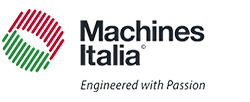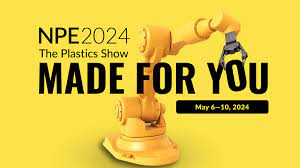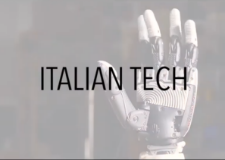Safety & Market Surveillance Package: a milestone to machinery compliance? As a long-time promoter of effective and efficient market surveillance, the European machinery industry warmly welcomes the European Commission's Package presented on February 13, 2013, yet calls for more ambitious measures in order to tackle the challenge of non-compliant machinery in the Internal Market.
"The European machinery industry, represented by CECE, CECIMO, CEMA, FEM and EUROMAP, warmly welcomes the proposal from the Commission, as it reflects many of the suggestions that our industry has made during the past months. Whilst we fully support the positive aspects of this package, we also call on the European Parliament and Council to come up with additional amendments to improve the overall effectiveness of the proposed scheme" says Luciano Anceschi, President of EUROMAP. The proposal for a Regulation on market surveillance includes some important improvements.
{pagebreak}
ONE SINGLE REGULATION FOR ALL PRODUCTS, A DIFFERENT CONCEPT OF RISK
The new Regulation on Market Surveillance addresses both the non-harmonized consumer and harmonized non-consumer products. Current market surveillance rules are scattered across a number of legislations, namely the GPSD (2001/95/EC), Regulation 765/2008 and a range of sector-specific legislation. The Package now brings these rules together in one single instrument and aims at establishing uniform rules for market surveillance activities across the EU.
The Regulation introduces a broader definition of risk, which places all public interests on the same level of importance. Whilst in the past, risk for public interest was mainly interpreted as risk for safety and health, now it is extended so as to safeguard also environmental protection and energy efficiency regulated by EU harmonized legislation. Therefore, any non-compliance with sector-specific EU legal requirements is going to be considered as a risk against public interests. Moreover, the document also indicates the specific measures should be taken in case of serious risk, which include destroying, preventing from placing on the market, recalling and withdrawing the respective products.
This implies also that when authorities identify product for instance not correctly labelled or not accompanied by correct documentation they shall consider that product as a possible "risk" against public interests and they have to take action.
Martin Kapp, President of CECIMO comments: "This is very important for our manufacturers who have been asking for a long time for rapid and effective actions to prevent non-compliant machines from creating unfair competition in the Internal Market."
OBLIGATIONS ON MEMBER STATES CLARIFIED
While the New Legislative Framework had foreseen a role for the EC to monitor the implementation of Regulation 765/2008 this had failed to achieve the expected results. The new package goes further as it will require Member States to inform and report about their national sector-specific programmes as well as the financial means they wish to allocate, and by establishing the obligation for market surveillance authorities to follow up complaints from interested parties. The Regulation also pushes Members States to provide better financing of market surveillance activities and obliges customs authorities of the Member States to implement border-to-border early alerts.
{pagebreak}
ENHANCED COOPERATION AT EU LEVEL
As market surveillance cannot be achieved at Member States level alone, more and greater EU coordination is foreseen by the legislation. For this purpose, the rapid exchange information alert system (RAPEX) has been extended to harmonised non-consumer products, and a European database for notifications and statistics has been placed under the Commission's control (ICSMS). The Commission also has the possibility of directly intervening in a number of cases through Implementing Acts. Finally, the Regulation also establishes a European Market Surveillance Forum (EMSF) with sectorial subgroups.
"We welcome this initiative which should help to coordinate the activities of all the national authorities and directly spot a sectoral market surveillance problem" says Jan van der Velden, President of FEM "However, the role of the industry in that Forum should go beyond that of a mere observer so that our technical expertise can be fully used."
THE ROLE OF INDUSTRY SHOULD BE CLARIFIED AND ENHANCED
Market surveillance is an activity confined to governmental bodies. However, regulations are complex, and products are technical and difficult to check. Therefore, input from industry is important to make the system work.
"This is the reason why Trade Associations should be taken on board to cooperate with the Authorities of the Member States to set up technical procedures for the inspection of the machines" continues Mr van der Velden.
{pagebreak}
SANCTIONS SHOULD BE HARMONISED and EARMARKED TO MARKET SURVEILLANCE ACTIVITIES
There is no way to ensure an effective market surveillance system in the Single Market if different penalties apply. Harmonisation is crucial to ensure that rogue traders will incur the same risks regardless of where or when they place their product on the EU market. "Everybody knows that resources are scarce " says Johann Sailer, President of CECE " and that is the reason why I believe this point is important to motivate the authorities to abide by their obligations: if the fees collected are not reallocated to enhance the controls, no real virtuous cycle can be initiated. We therefore propose minimum thresholds or ceilings to harmonise sanctions, PLUS an obligation for Member States to at least partially earmark the penalties collected to refinance market surveillance and customs controls."
"Market surveillance is an essential pillar of the internal market;" said Gilles Dryancour, President of CEMA "without appropriate controls on compliance, requirements are of no value. The internal market will only be completed when rules are respected, not when they are just in place."
About CECE, CECIMO, CEMA, FEM and EUROMAP
CECE - The Committee of European Construction Equipment (www.cece.eu) is the recognised organisation representing and promoting the European construction equipment and related industries in order to achieve a fair competitive environment via harmonised standards and regulations. CECE is a European network consisting of a secretariat in Brussels and national association offices in 14 different European countries. The industry behind CECE comprises 1,200 companies. In 2011, these equipment manufacturers had a total turnover of 23 billion € and employed 130,000 people directly.
CECIMO - CECIMO is the European Association of the Machine Tool Industries. We bring together 15 national Associations of Machine Tool Builders, which represent approximately 1500 industrial enterprises in Europe*, over 80% of which are SMEs. CECIMO covers more than 97% of total Machine Tool production in Europe and about one third worldwide. It accounts for almost 150,000 employees and a turnover of nearly €21 Billion in 2011. More than three quarters of CECIMO production is shipped abroad, whereas half of it is exported outside Europe.
CEMA - CEMA is the European association representing the agricultural machinery industry. The industry represented by CEMA includes 4,500 manufacturers of agricultural equipment employing directly 135,000 persons and indirectly in the distribution and service network another 125,000 persons. The companies are mainly small and medium-sized manufacturers according to the EU definition and in 2011 had a total turnover of 26 billion euro.
FEM - Created in 1953, the European Materials Handling Federation (www.fem-eur.com) represents, defends and promotes European manufacturers of materials handling, lifting and storage equipment. FEM speaks for 15 members representing some 1,000 companies (mostly SMEs) employing 160,000 people directly and with an annual turnover of €45 billion (2008).
EUROMAP - Europe' s Association for plastics and rubber machinery manufacturers is a major European industry with almost 3,700 companies which together have an annual turnover of more than 17 billion EURO and about 100,000 employees. EUROMAP covers the plastics and rubber machinery manufacturing industries in Austria, France, Germany, Italy, Luxembourg, Spain, Switzerland, Turkey and the United Kingdom.


























